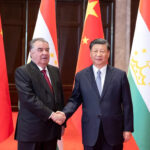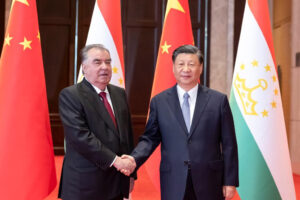Last month the Chilean government submitted an energy transition bill to congress with one central objective – to help mitigate the power system’s transmission shortfalls.
The draft legislation contains a series of associated measures including one directly aimed at easing the short-term pain of companies suffering problems in the spot market, namely a change to the so-called tariff-based income system.
Tariff-based income is currently received by transmission firms as part of the spot market payments made by generation companies in the system.
Another pillar of the bill paves the way for an auction of energy storage systems. If the bill is approved, energy regulator CNE would be tasked with conducting studies and preparing bidding rules.
BNamericas conducted an email interview with local lawyer Eugenio Evans, partner at legal firm Evans Group, to hear his views on the bill.
BNamericas: What could be the most important or relevant elements of the government’s energy transition bill?
Evans: The bill has several relevant aspects from a regulatory point of view. There are issues that will be discussed more intensely in the legislative process, especially the effects of the reallocation of extraordinary tariff-based income on the bills of regulated customers.
Regarding the rest, the regulator’s interest in improving the performance of tenders and reducing conflict in the development of expansion works is noteworthy. From a global perspective it is very necessary, at country level, to urgently and effectively address an energy transition in terms of legislation. Climate change is having a serious impact on us, but it also creates opportunities for a country with the geography of Chile.
BNamericas: In general, do you think the energy industry views the bill favorably?
Evans: I think so, especially by those who operate NCRE [non-conventional renewable energy] generation plants, since this type of generation is being greatly affected by bottlenecks in the transmission system – specifically by decoupling caused by these bottlenecks, among other deficiencies. So, the recognition that storage systems stand out as a key component to allow greater dispatch of renewable energy is also appreciated by the industry.
BNamericas: Do you think the bill will face opposition in congress?
Evans: Yes, probably because of what has been said about extraordinary tariff-based income. A careful analysis of the problem should, however, allow any opposition to be addressed.
BNamericas: It seems that there is a lot of local interest in the planned storage system auction. How do you see it?
Evans: Indeed, the renewable energy storage system auction should be of interest to both local and international investors. Improving storage systems is key to reducing these bottlenecks in the transmission system while the construction of new transmission lines is established. This is essential to meet the goal of decarbonizing the energy matrix within the deadlines that the country has set for itself.
The decarbonization schedule seeks a significant reduction in greenhouse gases with total withdrawal or conversion of coal-fired generation plants by 2040 – progress is already being made with this – to achieve a goal of a carbon-neutral electrical system or provided with 100% emission-free generation sources by 2050.
BNamericas: For Chile to achieve its decarbonization goals and attract the necessary investment to create quality jobs, etc., it seems that an adequate regulatory framework is only part of the puzzle. Another central issue today is permits – that is, delays and administrative actions – which can impact the progress of projects.
Source : bnamerica
















